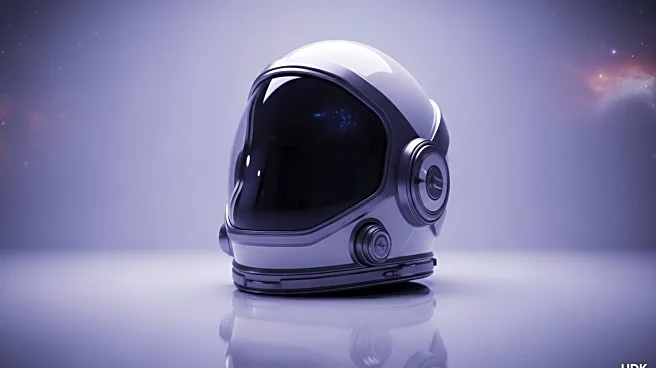What is the story about?
What's Happening?
Megan McArthur, renowned for being the first woman to pilot a SpaceX Dragon spacecraft, has retired from NASA after more than two decades of service. McArthur's career included significant contributions to space exploration, such as her role in the final space shuttle mission to repair the Hubble Space Telescope and her extensive time aboard the International Space Station. Her background in aerospace engineering and oceanography has been instrumental in her success as an astronaut. McArthur is now serving as the chief science officer at Space Center Houston, where she promotes spaceflight and STEM education.
Why It's Important?
McArthur's retirement marks the end of a significant era in NASA's history, highlighting the contributions of women in space exploration. Her work has paved the way for future missions to the Moon and Mars, emphasizing the importance of diversity and inclusion in the field. As commercial space opportunities expand, McArthur's legacy serves as a reminder of the critical role women play in advancing scientific research and exploration. Her efforts in STEM education continue to inspire future generations to pursue careers in science and technology.
What's Next?
With McArthur's departure, NASA and other space agencies may focus on recruiting and training new astronauts to continue the work she helped pioneer. The Artemis II mission, scheduled for no later than April 2026, will be a key milestone in returning humans to the Moon, building on the foundation laid by McArthur and her colleagues. Additionally, commercial space companies like SpaceX and Virgin Galactic may offer new opportunities for diverse candidates to participate in space exploration.
Beyond the Headlines
McArthur's career highlights the intersection of oceanography and space exploration, demonstrating how skills in one field can enhance capabilities in another. Her work underscores the importance of interdisciplinary approaches in solving complex problems, a trend that is likely to continue as space missions become more ambitious. The ethical and cultural implications of her contributions also reflect broader societal shifts towards greater inclusivity and representation in STEM fields.
















